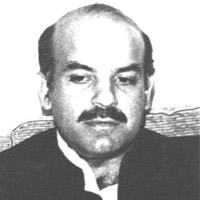 In 2016’s elections, Shehbaz Sharif was chosen without opposition to serve as the president of the PMLN chapter in Punjab.
In 2016’s elections, Shehbaz Sharif was chosen without opposition to serve as the president of the PMLN chapter in Punjab.
Shehbaz was not a member of the National Assembly, thus he could not be sworn in straightaway. Shahid Khaqan Abbasi was thus appointed Pakistan’s temporary prime minister for 45 days, apparently providing Shehbaz ample time to run in a by-election and win a seat in the assembly.
However, upon Abbasi’s election as Pakistan’s prime minister, it was noted that he would probably hold that position for the next 10 months until the 2018 general election as a result of Shehbaz Sharif’s refusal to resign from his position as Chief Minister of Punjab. Despite this, because to disagreements, he was not appointed PML-N leader.
Shehbaz reportedly rejected multiple earlier offers from the establishment to serve as Pakistan’s prime minister.
Shehbaz was announced by Nawaz as the party’s candidate for the position of prime minister in the upcoming June 2018 general election during a party meeting between senior PML-N members in December 2017. Nawaz claimed that Shehbaz “had never disappointed him or the party, and had risen to prominence because of his hard work and performance”.
Shehbaz was chosen to lead the PML-N without opposition on March 13 after being named as the party’s temporary leader on February 27.
Hasan Askari Rizvi succeeded Shehbaz as interim chief minister of Punjab on June 7, 2018.
In the 2018 Pakistani general election, he was chosen as the PML-N candidate from Constituency NA-132 (Lahore-X) and was elected to the National Assembly. He was re-elected to the Provincial Assembly of Punjab in the same election as a PML-N candidate from Constituencies PP-164 (Lahore-XXI) and PP-165 (Lahore-XXII). He gave up his Punjab seats after being elected successfully in favor of the National Assembly seat. He received the PML nomination N’s for prime minister of Pakistan on August 16. He garnered 96 votes on August 17, 2018, but Imran Khan won the election. One 111 Members of the National Assembly nominated him for the role of Leader of the Opposition in the National Assembly that same day.
He was appointed Leader of the Opposition in the National Assembly on August 20, 2018. From December 22, 2018, to November 28, 2019, he presided over the Public Accounts Committee in his capacity as leader of the opposition. He left the position, and Rana Tanveer Hussain took his place.
Shehbaz was detained on September 28, 2020, by the National Accountability Bureau on suspicion of laundering more than Rs 7,328 million in a deliberate plot involving close friends and relatives. Prior to this, the Bureau said that 23 separate properties owned by Sharif, his son, and other family members had been bought outside of known sources of revenue. The Shehbaz Sharif family is accused by the NAB of using fraudulent transactions to get foreign cash. The transactions allegedly took place through a business controlled by Sharif’s son-in-law, Haroon Yousaf.
Shehbaz remained imprisoned while his case was being heard.
In order for him to attend the funeral prayers for his mother in November 2020, he was given a brief parole release.
He was granted bail in a money laundering case by the Lahore High Court on April 14, 2021.
During a vote of no confidence in outgoing Prime Minister Imran Khan following the 2022 Pakistani constitutional crisis, opposition parties selected Sharif as their candidate for prime minister on April 10, 2022.
On April 11, 2022, he was chosen as prime minister. On that same day, President Arif Alvi, who had complained of “discomfort,” excuse himself to take the oath of office, which was then given by Senate Chairman Sadiq Sanjrani.
Since he first entered politics, Sharif has occupied a significant position in Pakistan. During his time as Punjab’s chief minister, he is credited with revitalizing the country’s economy. He has also received recognition for his work on infrastructural initiatives, including the development of highways and airports, as well as for his initiatives to advance Pakistan’s healthcare and education systems. Everyone now anticipates that he will review his performance in his new role as PM. Due to Pakistan’s struggling economy and the absence of his older brother Nawaz Sharif, he is currently dealing with several difficulties. He has faced criticism from the opposition for his extremely difficult decisions as PM, including raising the price of gasoline and electricity. “I believe fixing the economy is uppermost on my agenda. We need to give confidence to the market to make it stage a comeback. At the same time, there is also the challenge of providing relief to the masses whose lives have been made miserable due to the flawed economic policies of the PTI government,” Shehbaz told Al Jazeera.
Last Updated: Apr 2023
Mian Shahbaz Sharif was born in 1950 and got his early education from Cathedral School Lahore. He was a son of Mian Muhammad Sharif, a leading industrialist of Lahore and the owner of Ittafaq Foundries. His father wanted him to become an engineer but Shahbaz Sharif was not interested in science subjects. He got admission in Government College Lahore, from where he did his Masters in Economics.
Sharif family were perturbed with a great economic setback when during the process of Nationalization Ittafaq Foundries were taken over by the Bhutto government. At that critical time Shahbaz Sharif decided to help his father in his business. He worked hard along with his father and within a couple of years they successfully managed to establish six new factories. Under the guidance of his conscientious and talented father, Shahbaz Sharif showed his caliber as an effective and resourceful businessman.
In 1983, when his brother Nawaz Sharif was a provincial minister he was also asked to participate in local bodies elections but he refused to do so. However, he played an active role in the election campaign of his brother Nawaz Sharif. In the same year Shahbaz Sharif was elected as the President of Lahore Chamber of Commerce and Industries.
Shahbaz Sharif participated in the elections of 1988 and was elected from Lahore as Member of both National and Provincial Assemblies. He opted to retain his seat in the provincial assembly of Punjab where his brother Nawaz Sharif was the Chief Minister. However, after winning the election in 1990 he decided to become member of National Assembly. Yet till 1993, Shabaz Sharif was mainly interested in his family business hardly spending time in politics.
When Benazir Bhutto as the leader of Pakistan Democratic Alliance (PDA) was elected for the second time as the Prime Minister of Pakistan in 1993, Shahbaz Sharif was once again elected as the Member of the National Assembly. This time he showed more interest in politics and made his presence felt both inside and outside the Parliament. When Nawaz Sharif was reelected as the Prime Minister of the country in result of the election of 1997, Shahbaz Sharif decided to opt for the provincial seat. Punjab Provincial Assembly elected him as the leader of the house by casting 226 votes in his favor in the house of 240. He remained the Chief Minister of Punjab from February 20, 1997 to October 12,1999 when the Prime Minister Nawaz Sharif was abruptly sacked and all the assemblies were dissolved owing to the military coup.
During his regime as Chief Minister, Shahbaz Sharif took keen interest in the development of Information Technology Sector in the province. Microsoft and Oracle made huge investments in the Punjab. Latest wireless system and transport were allotted to the police department. He constituted special courts for controlling terrorism. Khidmat Committees were effectively established. In the health sector 79.5 billion rupees were spent for improvement of government hospitals. Examination system was fairly improved by doing away with all the unfair and corrupt means and methods. Self-finance scheme was eliminated in the educational institutions and better educational facilities were provided for the women. 3.5 million rupees were spent for the establishment of vocational training schools in rural areas. 5000 tractors were delivered to the farmers for their welfare under the Green Scheme. At Lahore 579 roads were widened or carpeted/constructed during these years. The condition of roads in other big cities of the Punjab was also improved. Shahbaz Sharif strictly banned the use of loud speakers for spreading sectarianism in the province and plainly said that ‘those who preach sectarianism are neither Muslims nor Pakistanis’.
The government of Nawaz was dismissed on 12th October 1999 and General Pervaiz Musharraf became the Chief Executive of the country. Both the Sharif Brothers along with many others were taken into custody. After a few months as a consequence of a covert deal the entire Sharif Family was shifted to Saudi Arabia. General Musharraf claims that the family members themselves tendered a demand for their exile. Shahbaz Sharif, however, claims that he was not part of any such deal. He tried to come to Pakistan in 2004 but was deported from the Lahore Airport.
During his exile, Shahbaz was elected as the President of Muslim League (Nawaz Group) on August 3, 2002 and still holds this position.
Mian Muhammad Shahbaz Sharif along with his immediate family was forced into exile and left Pakistan for Saudi Arabia in the year 1999. However, his family returned to Pakistan in 2007 but he did not come as the court had ordered his arrest. In addition, he was also not allowed to run in the general elections of 2008 because of the numerous charges he was facing. On his return before 2008 elections after he was cleared on all charges by the court he was re-elected for the post of Chief Minister of Punjab. In this period of responsibility, he made numerous changes to Punjab that have benefited society in various ways. Some examples are:
- The Lahore Metro Bus initiative
- Free educational institutes to the less fortunate classes of society
- The giving of free Laptops to students in order to help them in their studies
- The Punjab Youth Internship Program
- Yellow Cab Scheme
- Rehabilitation of flood victims in Punjab and Sindh.
Shahbaz Sharif also actively took part in the scheme to terminate the Dengue Fever outbreak that occurred in 2011. This resulted in many lives being saved and was appreciated by numerous foreign countries. He also protested against the long periods of load-shedding that occurs in Pakistan andaimed to reduce it drastically.
In the general elections of 2013 he was again re-elected as the Chief Minister of Punjab for the third time in his political career. This indeed is a remarkable achievement!
This article was last updated on Aug 2013



